When I was searching for the best gigs to teach English abroad, I instantly fell for the salary and benefits package that the EPIK program in South Korea provides teachers.
It’s hard to beat the competitive salary paid to English teachers in the EPIK program, which is why South Korea has historically been at the top of every list for the best places to teach abroad.
On top of a decent base salary, English teachers in the public schools also receive subsidized health insurance, a pension, and various contract bonuses – the pros of teaching in Korea are pretty great. That coupled with the comparatively lower cost of living in Korea, and I was able to live a comfortable life in Daegu.
While times have changed (the depreciation of the won and general global inflation) and EPIK has lowered some of the previously great benefits, teaching English in Korea can still be a great way to live abroad while earning an income.
So here’s a detailed breakdown of the EPIK pay scale and benefits that come with teaching English in South Korea.
This post may contain affiliate links, meaning at no additional cost to you, if you click my links and make a purchase, I may earn a small commission. Learn more on my disclosure page. Thank you for your support!
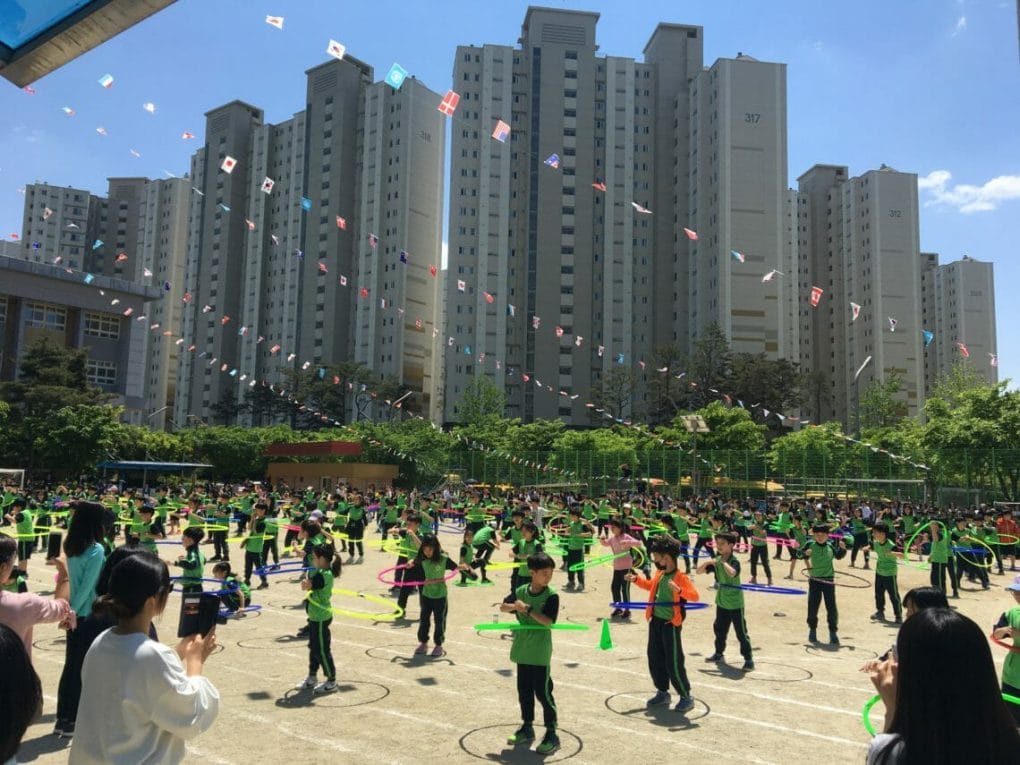
What You Need to Teach English in Korea
Before jumping into the details regarding the teaching English in Korea salary, let’s talk about eligibility! Korea has some strict rules for who can apply and become an EPIK teacher in their public schools.
Teaching English in South Korea requirements:
- You must be a native English speaker from these countries: USA, Canada, England, Ireland, Scotland, Australia, South Africa, and New Zealand, or prove native ability through TOEFL scores if you’re from India.
- You must have a bachelor’s degree
- If your bachelor’s degree is not in teaching or English, you must have a TEFL certification
- You must pass their strenuous application, interview and a medical/drug test
Read More: What you Need to Apply to the EPIK Program (And the Cost)
EPIK TEFL Requirements
Choosing a TEFL for Korea doesn’t have to be a pain. But unfortunately, the EPIK program doesn’t really share any specific requirements for the type of TEFL certifications they prefer teachers to have.
They do however stipulate that they want to see some in-class hours. It’s also generally considered that a TEFL with at least 120 hours is usually the best. You do not need anything crazy expensive, a cheap online TEFL from a provider like iTTT or PremierTEFL will suffice just fine.
If you’re in need of a TEFL certification, I have a 20% discount for ITTT via my unique link. Your savings are applied directly at checkout.
The EPIK Salary + Benefits.
Time for the good stuff. This is exactly what you can expect to earn in Korea as an EPIK English teacher.
1. The EPIK Salary
2.1 – 2.35+ million won / month
The EPIK pay scale is pretty specific and is broken up between five levels, with 1 having the highest pay. It’s based on qualifications, teaching experience, time with EPIK, and where in Korea you’re teaching, so everyone’s salary will vary.
*EPIK does not hire teachers that fall under level 3. That means new teachers with a TEFL certificate + college degree in something other than education can expect between 2.1 – 2.35 mil won per month, or $1,500-$1,800+ depending on the exchange rate.
| Level | Requirements | Busan, Incheon, Daegu, Gyeonggi | Other Cities | Jeju | Other Provinces |
| 1+ | 2 yrs at level 1 w/EPIK | 2.6 mil KRW | 2.7 mil KRW | 2.8 mil KRW | 2.7 mil KRW |
| 1 | 2 yrs teaching experience w/ teacher’s license, TEFL, Master, or Bachelor | 2.4 mil KRW | 2.5 mil KRW | 2.6 mil KRW | 2.5 mil KRW |
| 2+ | 1 yr teaching experience, w/ Bach in Ed, OR Bach + TEFL/teaching License | 2.3 mil KRW | 2.4 mil KRW | 2.4 mil KRW | 2.3 mil KRW |
| 2 | Bach degree in Ed, OR Bach degree + TEFL/teaching license | 2.2 mil KRW | 2.35 mil KRW | 2.3 mil KRW | 2.3 mil KRW |

2. EPIK Bonuses
As part of your teacher contract with EPIK, teachers are entitled to a ton of bonuses! Here are them all clearly listed out for you.
EPIK’s Entrance Allowance
1.8 mil won
This reimburses you for the expense of your flight to Korea. They give this same allowance to everyone, regardless of the true cost of your flight. It’s typically paid out to you either your first or second paycheck.
In some cities like Daegu, Busan, Jeju, Incheon, and Chungbuk, this is paid out after 6 months.
Settlement Allowance
300,000 won
The settlement allowance helps teachers settle into their new apartments. It’s a small way to minimize the financial burden of moving abroad and it definitely helps! If I remember correctly, this was also paid to me either in my first or second paycheck.
Severance Pay/Contract Completion Bonus
One Month’s Salary
Once you’ve officially fulfilled your contract with EPIK and made it to the end of the year, you’re rewarded with a contract completion bonus, even if you decide not to sign another contract.
The bonus is equal to one month’s salary, and you get it for each 1-year contract completed. Get paid to keep your promise – how easy!
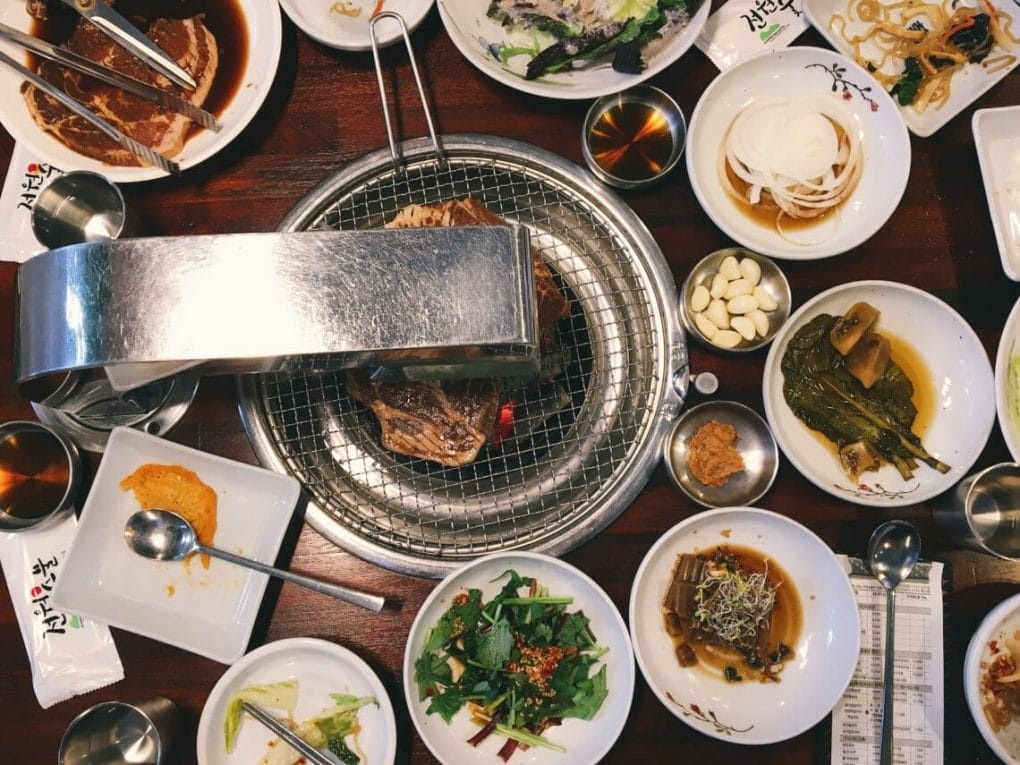
Exit Allowance
1.3 mil won
Not only does EPIK reimburse your flight to Korea, but they also help pay for your flight home. This exit allowance is only given once you actually leave Korea. Again, this is just a flat rate and they don’t need to see any flight receipt.
Renewal Bonus
700,000 won
At the end of your contract if you’ve decided you’d like to sign for another year at the same school, you’ll earn a contract renewal bonus of 700,000 won.
Those placed in Gyeonggi receive a 2 million won bonus split into two payments. 1.3 mil in your first month of your new contract, and 700,000 once you’ve successfully completed it. Those in Jeju earn a 1.3 mil won renewal bonus.
As of 2024, teachers in Seoul will no longer receive a renewal bonus.
Rural Bonus
100,000 won
When teaching with EPIK, you may end up in a rural area far from what feels like civilization. EPIK is sympathetic and supplies rural teachers with a 100,000 won bonus each month if placed in an area classified as such.
Additional School Bonus
100,000 / $90 USD per month – if placed at two schools
It isn’t uncommon to arrive to your new home and find that you’re not teaching at one school but two or three! Teachers working multiple schools receive a monthly bonus on top of their base pay.
Teachers working at a second school typically receive 100,000 extra per month. Those who teach at three different schools, will receive an additional 50,000 KRW on top of the extra 100,000.

3. Free Orientation and Training
When you arrive in Korea, you’re whisked off from the airport immediately to begin your EPIK orientation and training. As someone arriving to an unfamiliar place that will soon become home, having this support was very nice. I know of other countries where you’re essentially on your own once you land. Not only that, but the EPIK orientation provides:
- Free room and board for your entire orientation.
- Sponsored cultural excursions and activities in between classes.
- Free lectures and training seminars from professional teachers.

4. Rent-Free, Fully-Furnished Accommodation
Typically you’ll be placed in a studio apartment near your school. If you’re coming with your spouse, your apartment will be a 1 or 2 bedroom.
Per our contract with EPIK, your apartment should come furnished with a:
- Bed
- Table
- Chair
- Refrigerator
- TV
- Air Conditioner
- Closet/Wardrobe
- Stove
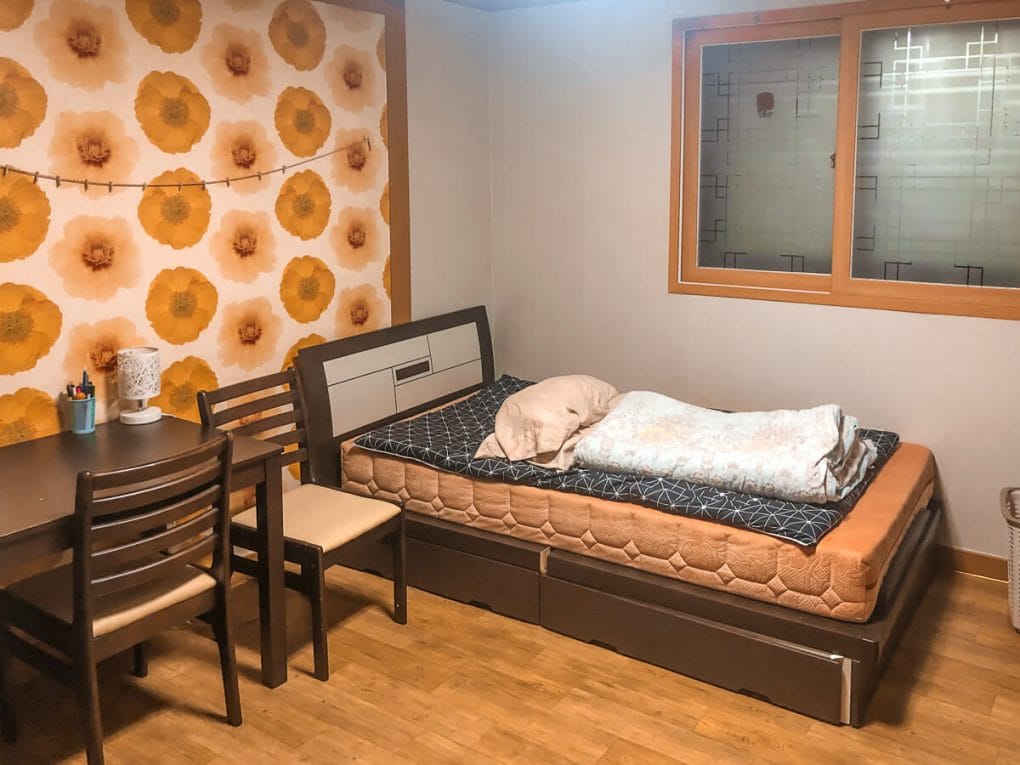
5. EPIK Vacation Days
EPIK teachers receive a total of 18 days paid vacation. It’s recommended that teachers use split their days between the winter and summer holidays.
Teachers also get to enjoy 14 paid national Korean holidays throughout the calendar year and 11 sick days. Sometimes these days land perfectly, creating a long weekend!

6. Affordable National Korean Health Insurance
Per Korean law, everyone must be covered by the National Health Insurance, the cost of which is taken out of our paychecks each month (2.945 %). EPIK teachers have the added benefit of 50% of our health insurance covered by the government, which contributes another 2.945% on your behalf to total the obligatory 5.89% insurance premiums due from your salary.
I recommend taking advantage of the EXTREMELY affordable health care here if you can. Medical care is a fraction of the cost compared to American standards.
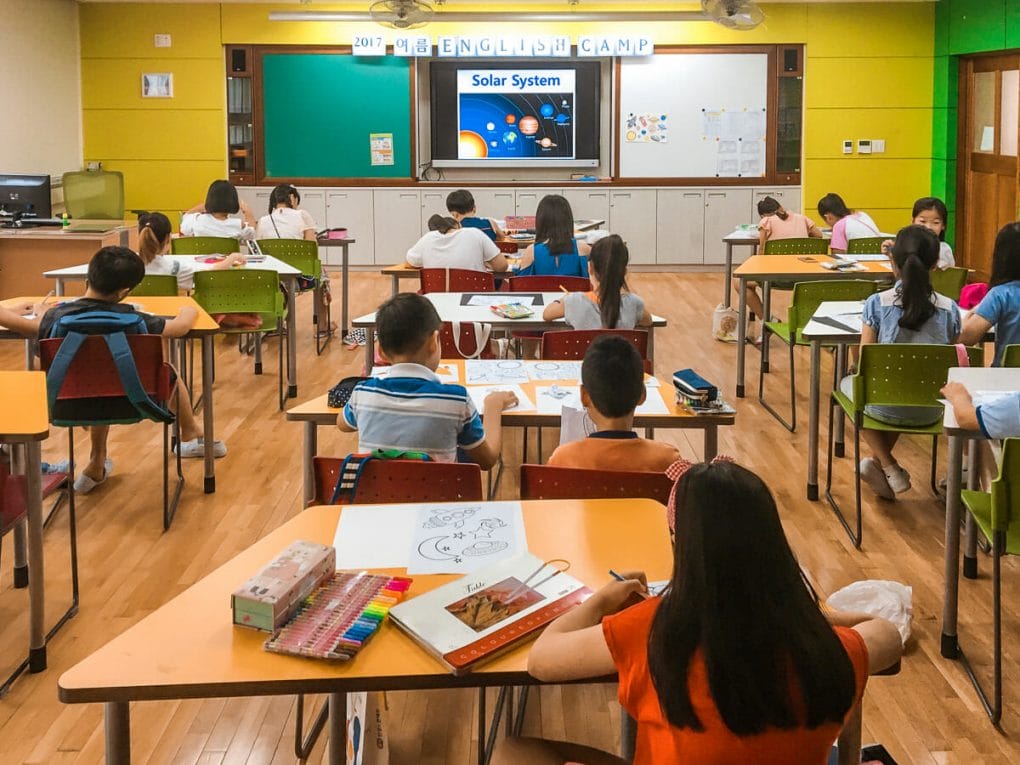
7. School Matched Pension Contributions
Per Korean law, approximately 9% of your total salary must be contributed to your pension. Lucky for us, half of our contribution is paid by our schools!
I paid about 84,000 won ($75) per month and my school matched that amount. You’ll receive a refund of your pension at the end of your contract so in the span of one year, you can expect about $1,500 in pension benefits.
The pension is mandatory for everyone per Korean law, but unfortunately only Americans, Canadians and Australians are currently eligible to receive the refund. Sorry my British, South African and other native English friends!
How to Apply to the EPIK Program
Are you convinced that teaching English in Korea and that the EPIK salary and benefits are too good to pass up? You can learn more about how to apply to EPIK with my helpful guide. Many people choose to apply independently to save money, but it’s also possible to apply with a recruiter or via a teach abroad program like CIEE’s Teach Abroad in Korea program. Happy teaching
Have you decided to pursue a teaching job teaching English in Korea? Share your questions or comments below!
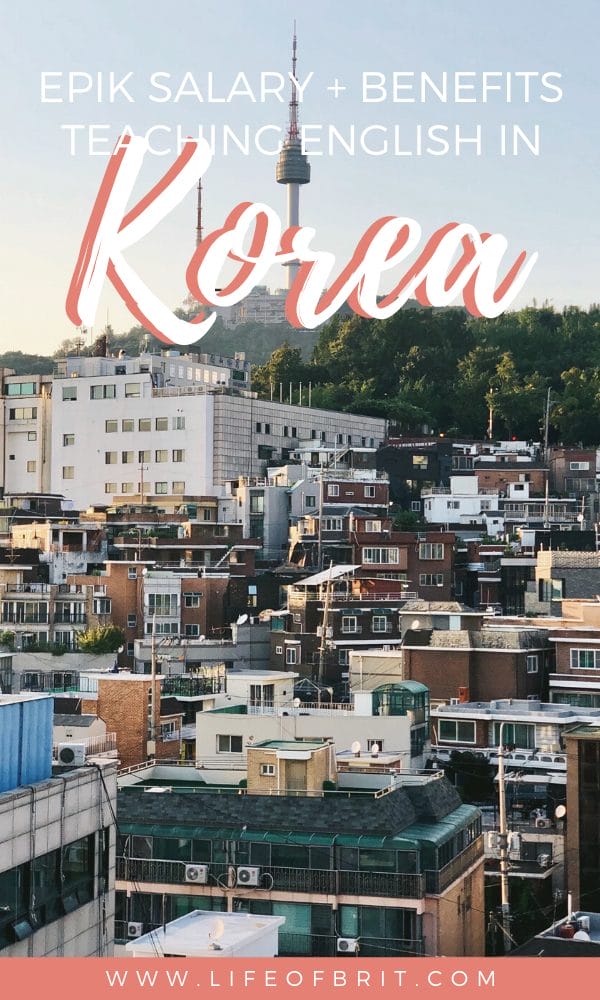




I might have just misunderstood or overread this information, but concerning the housing I was wondering whether it means that you do not have to pay rent. I did read that the flats have to be furnished, but will the school provide the flat for free? Entierly?
Hi there!! Yes it’s totally free – you don’t have to pay rent at all. The apartment is provided by the school and comes furnished with what they deem the essentials!! It’s a huge perk that helps teachers save hundreds of dollars each month ☺️
Very informative, thank you! Can you also let us know what you took home each month after Korean taxes/health care contributions?
Thanks so much!! Yes of course, that’s a good figure to share. I just checked out my old paystubs to confirm, and I was taking home about 1,975,000 won each month after the various deductions (insurance, pension, school social activities, and school lunch). So depending on the exchange roughly $1,800. This is actually tax free because Americans enjoy a tax treaty with Korea for up to two years . The pension (98,000/month) was refunded to me when I left. Hope this helps!
Are there ever any older people who teach English in Korea or is it only people under 30 ish? Also, I know that age is an important factor in Korean culture but does that extend to non-Korean people as well?
Hi Melanie! I can only share my personal observations/experiences (EPIK doesn’t release any official information about teacher demographics unfortunately), but there were a few teachers who were over the age of 30 at my EPIK orientation. It was only a handful, but I do remember meeting a few people who were in their 40s, and even a man in his upper 50s. I believe EPIK does have an age requirement where applicants must be under the age of 62 to be considered, but they do seem to hire teachers older than 30! In Korean culture, older age comes with a lot of respect. However, I noticed while I lived there, Koreans were pretty understanding / didn’t necessarily hold foreigners up to their cultural standards knowing that we may not fully understand them. But Korean students are more often than not respectful to teachers, no matter where you’re from or your age. And if you’re older, you’ll probably have an easier relationship with older teachers in your school too 🙂